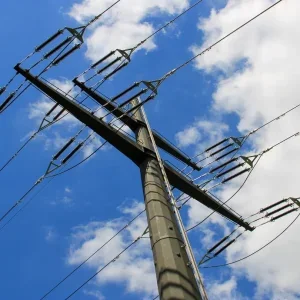
The global energy industry, a cornerstone of modern economies, has frequently found itself at the epicentre of economic downturns. These periods of economic contraction, often characterised by declining GDP, rising unemployment, and reduced industrial output, can severely impact the energy sector. This article delves into the multifaceted relationship between economic downturns and the energy industry, examining the challenges, opportunities, and strategic responses necessary to navigate these turbulent times.
The Interplay Between Economic Downturns and Energy Demand
Declining Industrial Activity and Energy Consumption
Economic downturns typically lead to a contraction in industrial activity, which is a significant driver of energy demand. Manufacturing, construction, and other energy-intensive sectors often scale back production in response to reduced consumer spending and investment. This decline in industrial output directly correlates with decreased energy consumption. For instance, during the 2008-2009 global financial crisis, global industrial production plummeted by nearly 13%, leading to a corresponding drop in energy demand.
Residential and Commercial Energy Use
While industrial energy demand tends to decrease during economic downturns, the impact on residential and commercial energy consumption is more nuanced. On one hand, rising unemployment and lower disposable incomes can lead to reduced energy use in homes and businesses. On the other hand, during times like the COVID-19 pandemic, where remote working became prevalent, residential energy consumption saw an uptick as people spent more time at home.
Impact on Energy Prices
Volatility in Oil Prices
Oil prices are particularly susceptible to economic downturns due to their global market dynamics. A reduction in economic activity leads to lower demand for transportation fuels and industrial inputs derived from crude oil. This decreased demand typically results in a sharp drop in oil prices. For example, during the early months of the COVID-19 pandemic in 2020, oil prices plummeted, with West Texas Intermediate (WTI) crude futures even briefly turning negative in April.
Natural Gas and Electricity Prices
Natural gas prices also experience volatility during economic downturns, though often to a lesser extent than oil. The demand for natural gas in power generation, heating, and industrial processes can decrease, leading to lower prices. Electricity prices, meanwhile, can be influenced by changes in both fuel costs and overall consumption patterns. The decrease in industrial electricity use can lead to lower wholesale electricity prices, although fixed costs of generation and transmission might mitigate some of these price drops for end consumers.
Financial Challenges for Energy Companies
Capital Expenditure and Project Financing
Economic downturns can lead to significant financial strain for energy companies, impacting their ability to fund capital-intensive projects. Financing new projects becomes more challenging as lenders and investors become risk-averse. This can result in delays or cancellations of exploration, production, and infrastructure projects. The 2014-2016 oil price collapse, for example, saw many oil and gas companies slashing their capital expenditure budgets, leading to a slowdown in new project developments.
Debt and Cash Flow Management
Energy companies often carry substantial debt loads due to the capital-intensive nature of their operations. During economic downturns, maintaining healthy cash flow to service debt becomes critical. Declining revenues and restricted access to credit can exacerbate financial difficulties, potentially leading to bankruptcies or forced asset sales. The bankruptcy of several high-profile oil and gas companies during the 2015-2016 period underscores the sector’s vulnerability to financial distress during downturns.
Strategic Responses to Economic Downturns
Cost Optimisation and Efficiency Measures
To weather economic downturns, energy companies frequently implement cost optimisation and efficiency measures. This can include workforce reductions, renegotiation of supplier contracts, and the adoption of more efficient technologies. For instance, during the 2014-2016 oil price collapse, many oil and gas companies focused on enhancing operational efficiencies and reducing production costs, which helped them survive and, in some cases, emerge stronger.
Diversification of Energy Portfolios
Diversification is a strategic imperative for energy companies looking to mitigate the risks associated with economic downturns. By investing in a mix of energy sources, such as renewables alongside traditional fossil fuels, companies can reduce their exposure to price volatility in any one segment. The growing emphasis on renewable energy investments by major oil companies, often termed as a shift towards becoming “energy” rather than strictly “oil” companies, reflects this strategic pivot.
Leveraging Technology and Innovation
Technological innovation plays a crucial role in helping energy companies adapt to economic downturns. Advances in digitalisation, automation, and artificial intelligence can enhance operational efficiency and reduce costs. For example, the use of digital twins and predictive maintenance in the oil and gas sector can lead to significant savings and improved asset reliability. Similarly, smart grid technologies can optimise electricity distribution and reduce operational costs for utilities.
Regulatory and Policy Considerations
Government Stimulus and Support
Governments often play a pivotal role in stabilising the energy sector during economic downturns through stimulus packages and support measures. These can include financial aid, tax relief, and subsidies aimed at maintaining energy production and ensuring energy security. The U.S. government’s Paycheck Protection Programme (PPP) during the COVID-19 pandemic, which provided loans to small businesses including those in the energy sector, is an example of such intervention.
Environmental and Climate Policies
Economic downturns can influence the trajectory of environmental and climate policies. While financial constraints might lead to a temporary deprioritisation of green initiatives, there is also a growing recognition of the importance of sustainable energy investments as part of economic recovery plans. The European Union’s Green Deal, which aims to make Europe climate-neutral by 2050, includes significant investment in renewable energy and energy efficiency projects as part of its post-COVID-19 recovery strategy.
Long-term Implications and Opportunities
Accelerated Energy Transition
Economic downturns, despite their challenges, can accelerate the energy transition towards more sustainable sources. The financial pressure to reduce costs and increase efficiency often leads to greater adoption of renewable energy technologies. The significant drop in the cost of solar and wind power over the past decade has made these options increasingly attractive. Additionally, public and private sector commitment to decarbonisation can spur investment in clean energy infrastructure even during economic downturns.
Resilience and Adaptation
The energy sector’s experience with economic downturns underscores the importance of building resilience and adaptability. Companies that have successfully navigated past downturns often emerge more robust and better prepared for future challenges. This resilience can be built through strategic diversification, investment in technology, and a focus on sustainable practices. For instance, the integration of energy storage solutions with renewable energy projects enhances grid stability and provides a buffer against demand fluctuations.
Conclusion
The energy industry is inherently intertwined with the broader economy, making it particularly susceptible to the impacts of economic downturns. However, these periods of economic challenge also present opportunities for innovation, efficiency improvements, and strategic realignment. By focusing on cost optimisation, diversification, technological advancement, and sustainable practices, energy companies can navigate economic downturns more effectively and position themselves for long-term success. The key lies in resilience and adaptability, ensuring that the energy sector not only survives but thrives in the face of economic adversity.






